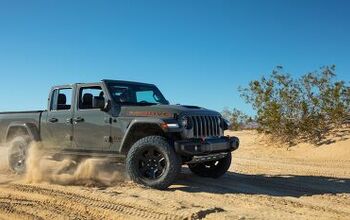Don't Drop Your Coffee: Toyota Unveils All-Wheel Drive Camry, Avalon

Depending on where you live, the newest variants of the Toyota Camry and its big brother, the Avalon, may arrive too late to help you conquer any wintry weather. This winter, anyway. Slated to arrive in North American markets starting early next spring, the two sedans boast something unfamiliar to owners of these long-running models: All-wheel drive.
In an announcement that took many by surprise, the automaker claims these new AWD sedans can thank the new-for-2019 RAV4 for their existence. A little engineering work later, and here we are. The 29-year drought of AWD Camrys has ended.
If you’re thinking that the AWD Camry and Avalon owe their development to a Lexus ES prototype you read about yesterday, think again. That sedan, tested by Japanese media, employed a hybrid car utilizing an E-axle setup, with the rear wheels operating independently of the vehicle’s drivetrain, a la the Prius AWD-e and the RAV4 Hybrid with E-Four.
These new beasts are gasoline-only models, though one can see that Toyota appears interested in offering a system for hybrid buyers. Stay tuned.
Not only are these new vehicles non-hybrids, but the AWD Camry and Avalon cannot be had with a V6 engine. The only powerplant here is the 2.5-liter inline-four, making 202 horsepower in the Camry LE, XLE, and SE (205 hp in the XSE) and 205 hp in the Avalon XLE and Limited. The company plans to offer this all-weather capability as a standalone option. The only external difference you’ll see is an “AWD” badge on the trunklid.
Unlike that hybrid prototype, both the AWD Camry and Avalon borrow the Dynamic Torque Control AWD system found in their RAV4 platform mate, which employs an electromagnetically-controlled coupling that engages and disengages the rear differential from the propshaft as needed. The system can send 50 percent of the vehicle’s torque rearward if the front wheels lose traction.
Adapting the system to the TNGA-based sedans took a little brainstorming.
From Toyota:
The [engineering] team combined the upper body structure of the Camry and Avalon with the engine, transmission, transfer case and rear differential from the RAV4. The RAV4’s version of the multi-link rear suspension was adapted with some modifications and tuning to suit the sedans. Both the Camry and Avalon AWD use a modified version of the propeller shaft from the all-new Highlander SUV.
Adapting the AWD drivetrain to the Camry and Avalon required floor structure modifications, plus the use of an electronic parking brake and a saddle-style fuel tank with an optimized capacity for AWD models rather than the flat-style tank in the FWD models.
Ride height is unchanged by the addition, Toyota claims, as is trunk floor height. Front suspension, wheels, and tires also carry over, as do standard and optional equipment.
Given that the rear axle will remain inert under most driving conditions, the automaker doesn’t anticipate much of a fuel economy penalty. There is a weight increase, however — 165 pounds for the Camry, while AWD Avalons will sport a heft similar to that of V6 models, the automaker said.
As for the Avalon’s Lexus ES sibling, there’s no word on an AWD version of that model, but today’s news almost guarantees we’ll see one. The all-wheel drive Avalon arrives later than the early-spring 2020 Camry variant; it’ll appear in the fall as a 2021 model. Pricing for the standalone AWD option remains TBD.
[Images: Toyota]

More by Steph Willems
Latest Car Reviews
Read moreLatest Product Reviews
Read moreRecent Comments
- Lou_BC Nah. Tis but a scratch. It's not as if they canceled a pickup model or SUV. Does anyone really care about one less Chevy car?
- ToolGuy If by "sedan" we mean a long (enough) wheelbase, roomy first and second row, the right H point, prodigious torqueages, the correct balance of ride/handling for long-distance touring, large useable trunk, lush enveloping sound system, excellent seat comfort, thoughtful interior storage etc. etc. then yes we need 'more' sedans, not a lot more, just a few really nice ones.If by "sedan" we mean the twisted interpretation by the youts from ArtCenter who apparently want to sit on the pavement in a cramped F16 cockpit and punish any rear seat occupants, then no, we don't need that, very few people want that (outside of the 3 people who 'designed' it) which is why they didn't sell and got canceled.Refer to 2019 Avalon for a case study in how to kill a sedan by listening to the 'stylists' and prioritizing the wrong things.
- Lou_BC Just build 4 sizes of pickups. Anyone who doesn't want one can buy a pickup based SUV ;)
- Jor65756038 If GM doesn't sell a sedan, I'll buy elswhere. Not everybody likes SUV's or crossovers or is willing to buy one no matter what.
- ToolGuy One thing is for sure: Automakers have never gone wrong following the half-baked product planning advice of automotive journalists. LOL.I wonder: Does the executive team at GM get their financial information from the Manager of Product and Consumer Insights at AutoPacific? Or do they have another source? Hmm...




































Comments
Join the conversation
I was not drinking coffee but I was drinking tea and yes, I dropped my cup of tea. I waited this moment my whole life and now I finally I can buy Camry with AWD and fulfill my childhood's dream.
Shoulda called it the All-trac. Bring back the wagon too. Camry all-tracs were the outback of the 80s after the amc eagle got axed.